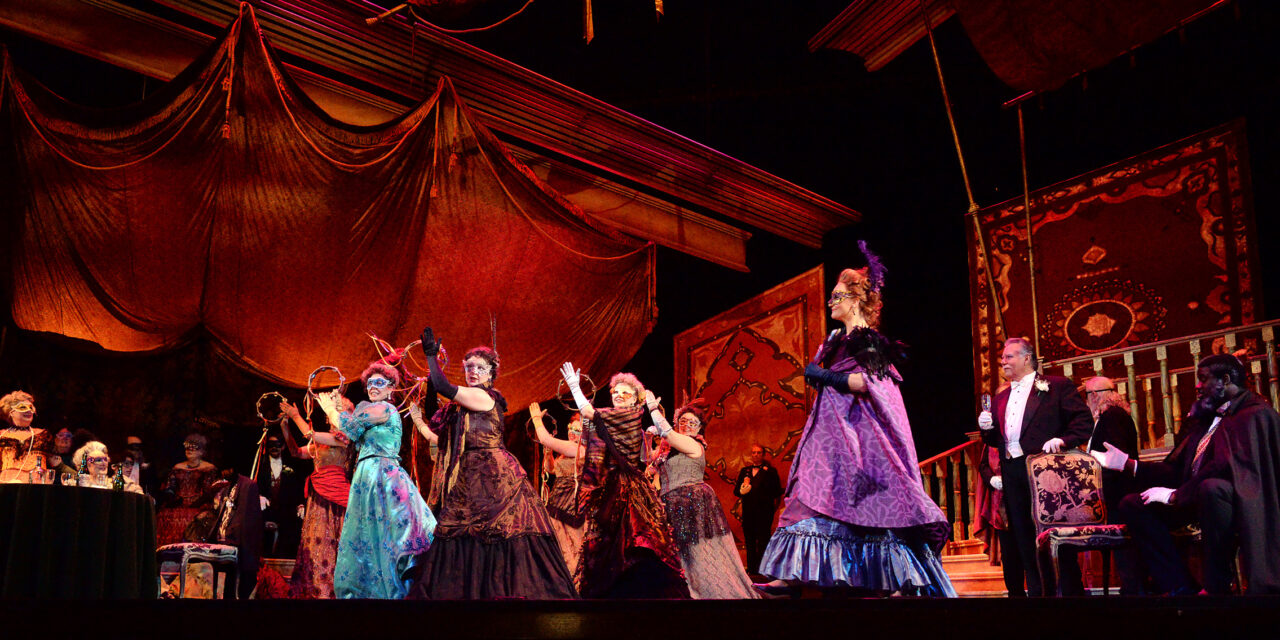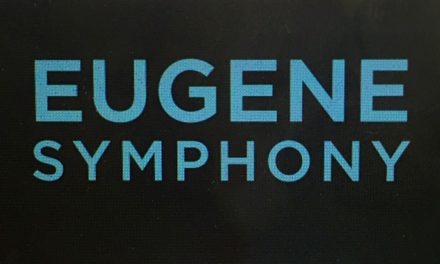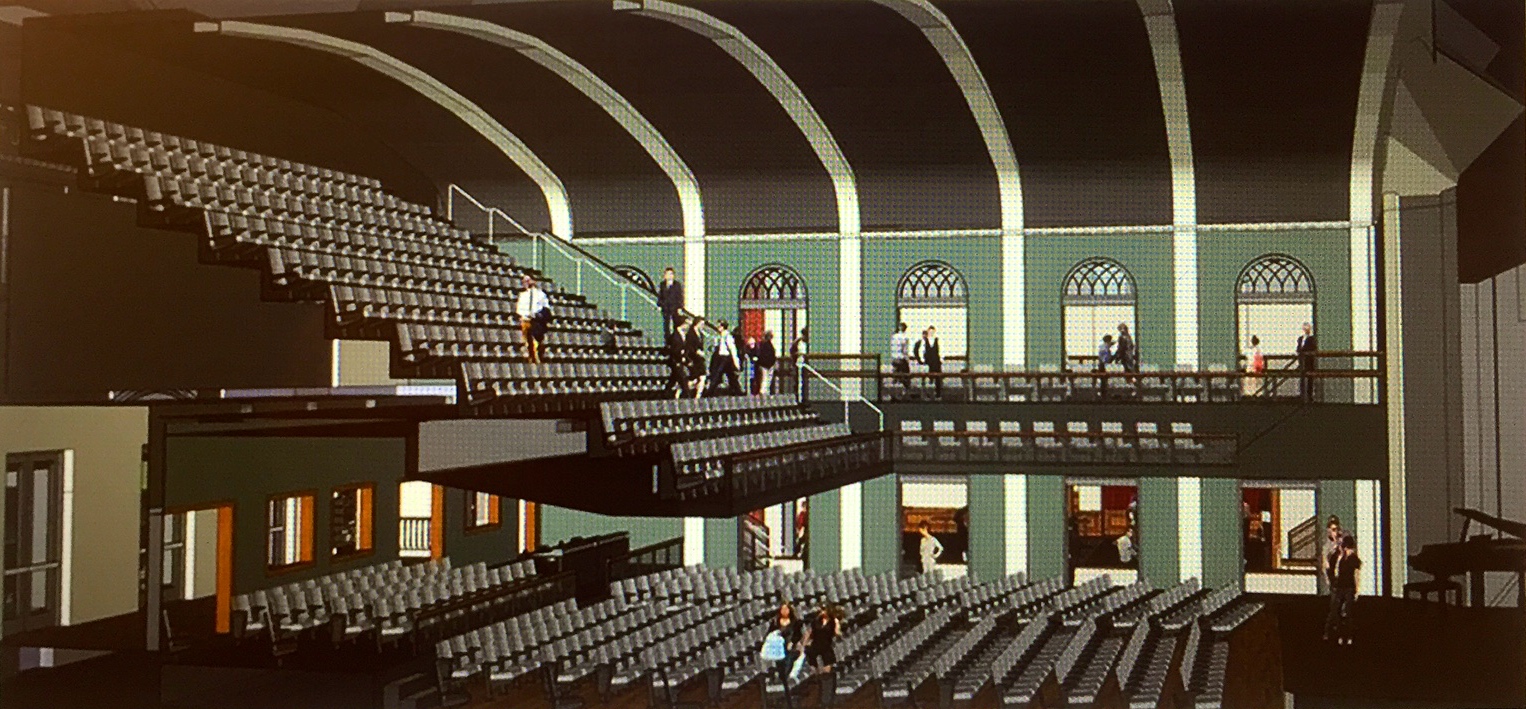(Party scene from Eugene Opera’s La Traviata; photo by Paul Carter)
By Randi Bjornstad
There’s nothing more fun, when announcing the performance of an opera, than to start by pulling out a tiny red book (measuring 3.5″ x 5.5″ x 1″) and looking to see what Felix Mendelsohn has to say about it in his volume, The Story of a Hundred Operas, which he copyrighted in 1913 and Grosset & Dunlap copyrighted and published in 1940.
Mendelsohn’s book tells us that Giuseppe Verdi’s La Traviata, sometimes known as Violetta, is an opera in four acts with libretto by Francesco Maria Piave, adapted from Dame Aux Camelias by Alexandre Dumas and first produced in Venice, Italy, in 1853.
The plot
The story takes place in Paris about 1700, Mendelsohn reports, opening in the drawing room of Violetta Valéry, “a beautiful queen of the Parisian demi-monde.” What Mendelsohn does not say but what other sources clarify, is that Violetta is a “fallen woman,” which is the meaning of La Traviata, and that the subtitle, Dame Aux Camelias, refers to the fact that she wears a red camellia in her hair during the time of the month when she is unavailable to accept clientele.
As Act 1 begins, Violetta already is in the first stages of consumption — tuberculosis — but she is entertaining a group of young men, one a man from a rich and prominent family, who toasts to her beauty and, when left alone with her, Alfred Germont declares his love. She warns him against considering her more than a friend, but when she realizes he really means it, she decides to abandon her current life and go with him to his country home.
Act 2 takes place there, but Alfred soon discovers that Violetta has decided to sell her house in Paris to give him money for upkeep of the country house, so he leaves for Paris to try to raise enough money himself to take care of them both. After he leaves, Alfred’s father visits Violetta and implores her to split up with Alfred, partly because of her past and also because his daughter is about to be married and he doesn’t want whiffs of scandal to derail the joys of that occasion, much less the family’s reputation. Violetta agrees to do what he wants and writes Alfred a letter telling him that she no longer loves him. He immediately returns, she flees back to Paris, he finds out what his father has done and follows her back to the city.
Act 3 starts in the drawing room of Violetta’s friend Flora, who is giving a masked ball. Violetta is in the company of Baron Douphal, one of her previous lovers. Alfred arrives, joins the gambling table and wins a lot of money, when he sees Violetta enter the room with the baron. “Alfred, in a fury of range,” Mendelsohn writes, “hurls his winnings at her feet, asking the company to witness that he pays back the money she has spent on him.” Alfred’s father, who has followed him there, apparently having changed his opinion of Violetta, enters the room and berates his son for treating her badly and expresses his despair for his own role in separating the young lovers.
In Act 4, Violetta is within hours of death from her declining health, as a doctor tells her friend, Annina, who is caring for her. A message comes from Alfred’s father, who says that Alfred has returned, and he soon arrives and the lovers are reunited. But it is too late, and after giving Alfred a portrait of herself as a remembrance, Violetta succumbs to her illness.
The cast
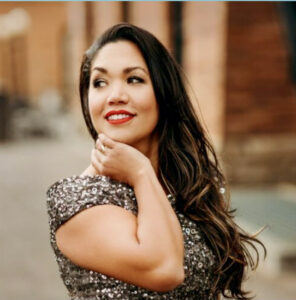
Vanessa Isiguen
The role of Violetta in Eugene Opera’s production is sung by soprano Vanessa Isiguen, who has performed previously in Eugene in La Bohéme and Madama Butterfly and has been described as “radiant” by the New York Times. She recently has had roles in Metropolitan Opera’s The Hours, as well as soprano soloist with the Oregon Symphony and the role of Almera in Dark Sisters with Orpheus PDX.
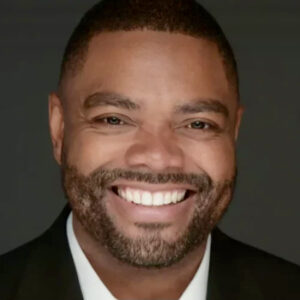
Bernard Holcomb
Bernard Holcomb appears in La Traviata for the first time on the Eugene Opera stage, as Alfredo (Alfred) Germont. Holcomb’s tenor voice has been featured in many classical and contemporary opera productions throughout the country, including Portland, New York, Dallas, Chicago, and Michigan, with roles in Otello, Porgy and Bess, Rigoletto, Central Park Five, and An African American Requiem.
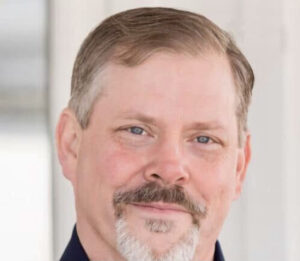
Malcom MacKenzie
Baritone Malcom MacKenzie returns to Eugene Opera as father Giorgio Germont in La Traviata. He has previously appeared in Eugene in Lucia di Lammermoor, Barber of Seville, and Tosca. He has performed the Giorgio Germont role in La Triviata with Colorado Opera, Virginia Opera, and Glimmerglass Opera, and other roles with many other opera companies, among them Metropolitan Opera, New York City Opera, Los Angeles Opera, Arizona Opera, and Forth worth Opera.
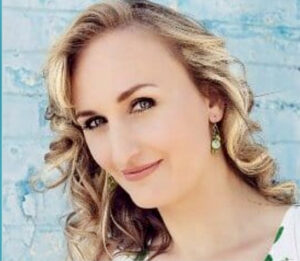
Agnes Vojtko
Mezzo-soprano Agnes Vojtko makes her Eugene Opera debut as Flora Bervoix in La Traviata. Vojtko’s career has taken her both to opera and concert stages, where she has appeared with the American Bach Soloists, Connecticut Early Music Festival, and Dallas Bach Society, as well as operatic roles with Austin (Texas) Lyric Opera, Opera in the Heights in Houston (Texas), Budapest (Hungary) Chamber Opera, as well as achieving general mastery of early music repertoire.
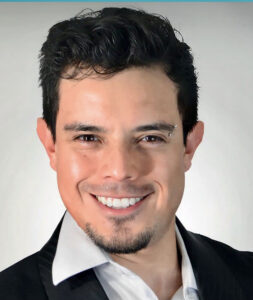
Esteban Zúñiga Calderón
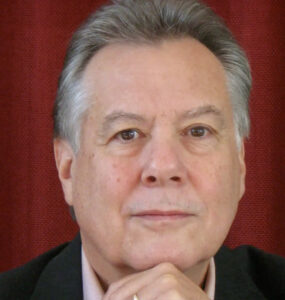
Doremus Scudder
Additional featured cast members include two Eugene performers. Baritone Doremus Scudder has a long list of Eugene Opera roles, including in Don Giovanni, Le Nozze di Figaro, Tosca, and Don Pasquale, as well as singing in many oratorios, masses and requiems, among them the Brahms and Mozart Requiems, Handel’s Messiah, and Beethoven’s Ninth Symphony. Eugene tenor Esteban Zúñiga Calderón is pursuing a Doctor in Musical Arts degree with a specialization in Historical Performance Practice at the University of Oregon.
Longtime Eugene Opera Maestro Andrew Bisantz will be on the podium for La Traviata, with stage direction by Nathan Troup.
Eugene Opera’s La Traviata
When: 7:30 p.m. on Friday, Jan. 26 and 2:30 p.m. on Sunday, Jan. 28
Where: Silva Concert Hall, Hult Center for the Performing Arts, One Eugene Center (7th and Willamette streets), Eugene
Tickets: $34 to $84, available at the Hult Center box office at 541-682-5000, or online at eugeneopera.org or hultcenter.org
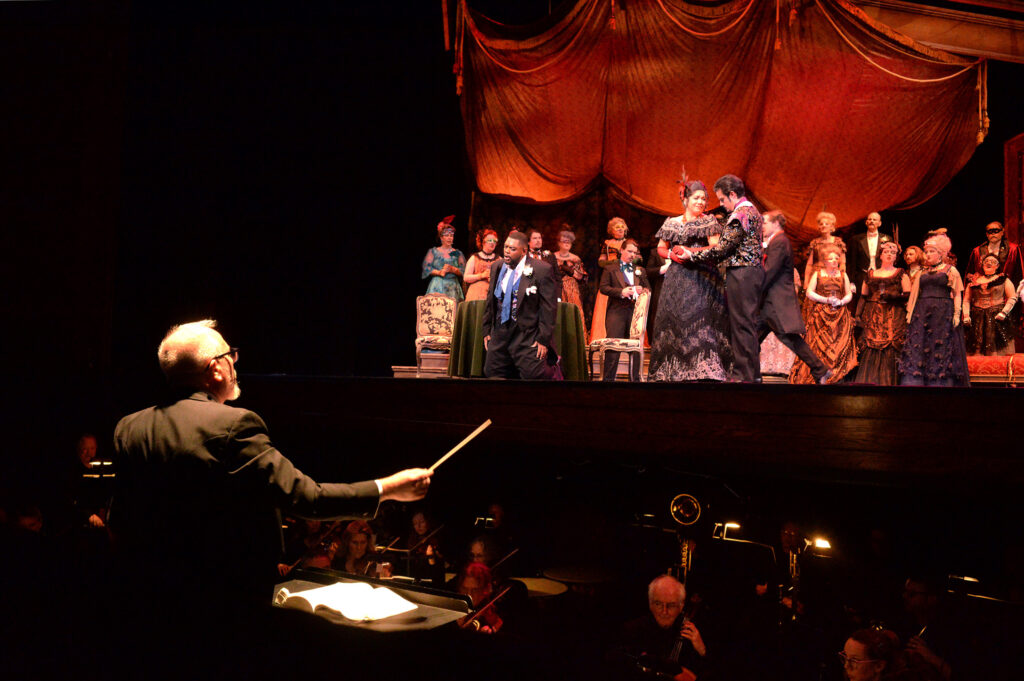
Conductor Andrew Bisantz at the podium as Eugene Opera performs La Traviata; photo by Paul Carter

